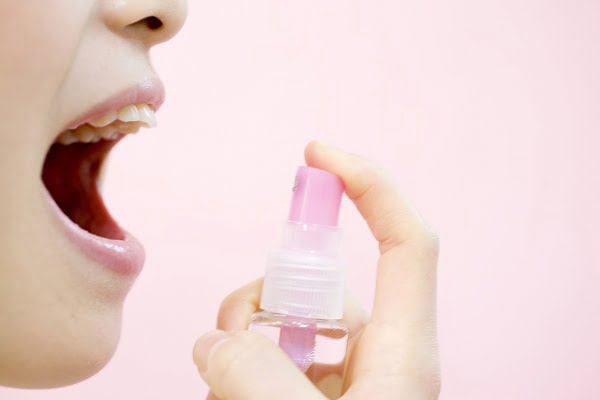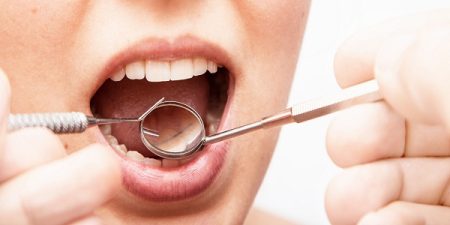What are Treatment Options and Home Remedies for Bad Breath (Halitosis)?
- Updated on: Jul 9, 2024
- 5 min Read
By
- Published on Oct 3, 2019


Treatment of bad breath
Treatment of bad breath depends on its cause. Generally, the most effective treatment is improving the dental hygiene and sticking to it.
Following are the ways by which halitosis (bad breath) can be treated.
Improving dental hygiene
Improving the dental hygiene is essential for keeping bad breath away. It means that the mouth should be properly cleaned every single day. Mouth cleaning is done in a number of steps which are:
Flossing between teeth
Proper flossing removes plaque and other food particles from places where a toothbrush cannot reach easily like between the teeth and under the gum line. Plague, if build up, can cause tooth decay and a lot of gum related disease and contribute to bad breath. Therefore, flossing on a daily basis is recommended by a dentist.
Brushing gums and teeth
For healthy teeth and gums, brushing is necessary. With proper care, teeth and gums can remain healthy throughout the life. The healthier the teeth and gums are, the less risk they are for decay and cavities.
Tips on how to brush your teeth
Below are listed some tips on how to brush teeth effectively:
- Choose a medium sized toothbrush with soft bristles
- Brush twice a day each time for at least two minutes
- Cover all areas paying special attention to the part where teeth and gums meet
- After drinking an acidic drink, avoid brushing for 30 minutes
- Avoid brushing for half an hour after eating
- After brushing, rinse the mouth with a mouthwash
Cleaning tongue
Just like teeth, bacteria also build upon the tongue. The bacteria and other debris collected on the tongue can cause bad breath and a white coloration on the tongue. Cleaning the tongue is as important as cleaning the teeth. The tongue can be cleaned in two ways:
Brushing: Brushing the tongue involves scrubbing the tongue gently from back to tip with a moistened brush. It can be done after brushing the teeth and before rinsing the mouth. It involves cleaning the tongue, cheeks and the roof of the mouth.
Scraping: Scraping the tongue involves cleaning the tongue with a tongue scraper. It is done with a device which is designed to glide along the surface of the tongue. It takes off the layer of mucus and all the debris and bacteria accumulated on the tongue. It is placed at the back of the tongue and moved towards the tip of the tongue with an even pressure.
Use of fluoride toothpaste
Fluoride helps in strengthening the tooth enamel and makes it more resistant to tooth decay and cavities. It also reduces the amount of acid produced by bacteria on teeth. Fluoride toothpaste is highly recommended for people suffering from halitosis.
Use of anti-bacterial mouthwash
People with halitosis are often advised to use an antibacterial mouthwash. These mouthwash are beneficial because:
- they fight bad breath
- are helpful in reducing the build-up of plague
- they fight gingivitis (periodontital disease)
- they loosen up hidden food particles
They also protect the mouth from infections and irritation.
Toothpaste and mouthwash containing oxygenating compounds
In order to prevent bacteria from producing bad odors, oxygenating compounds are introduced to the oral environment. It is because oxygen is the natural enemy of bacteria that cause this problem.
These bacteria are anaerobic and cannot function in the presence of oxygen. Using toothpaste and mouthwash containing oxygenating compounds stop these bacteria and eventually help to fight the bad breath.
Dentists usually recommend mouthwashes and toothpastes containing oxygenating compounds such as sodium chlorite or chlorine dioxide. These compounds neutralize volatile sulfur compounds and help to control the odor-causing bacteria.
Saliva substitute for dry mouth
People with halitosis often experience mouth dryness. They are recommended a saliva substitute by their dentists. These saliva substitutes help moisten the mouth throughout the day. Aloe Vera, green tea and tea tree oil are some of the natural substitutes.
Treating gum conditions
Sometimes, bad breath is caused due to gum conditions. The odor causing bacteria can lead to gum disease. Unhealthy gums provide a platform for these bacteria to breed and multiply.
Gingivitis is a condition of red and swollen gums which may cause bad breath. If a person experiences any such condition related to gums, their dentist can either treat the disease or refer the person to a periodontist. A periodontist is a dentist who treats especially gum conditions.
Dentist visit for regular check-ups
Regular dental check-up ensures that the patient’s teeth remain cleaner, lasts longer and can prevent painful conditions from developing in future.
Home remedies for bad breath (halitosis)
Home remedies are the self-care techniques which help in reducing the bad breath. There are several things which can be done at home:
Proper oral care
This is the most important part in treating bad breath. This includes:
- Regular teeth brushing, flossing and scraping at least twice a day
- Soft toothbrush is highly recommended as to not damage tooth enamel and gums
- Tongue should also be cleaned regularly along with teeth
- Mouth should be properly rinsed after eating anything that can be the reason for tooth cavities
- Dentures should be cleaned on a daily basis as it will help prevents the bacteria from building up
- Toothbrush should be changed every 2-3 months
Advanced oral care products
Use oral care products (toothpaste and mouthwashes) that are effective in fighting bad breath.
Stimulate the saliva
Dry mouth can be prevented by chewing gums and mints that are sugar-free. Eating citrus fruits like orange can stimulate the salivary glands and encourage the flow of breath freshening saliva.
Hydrate
Drinking adequate water helps in keeping the breath fresh. Drinking water will serve two purposes:
- It will wash away some of the bacteria that causes bad breath
- It will stimulate saliva production
Treatment with ingredients from the kitchen
Bad breath can be treated with some ingredients easily available in the kitchen. They are:
- Fennel – excellent mouth freshener
- Cinnamon – reduces amount of bacteria in the mouth
- Fenugreek – highly effective when bad breath is caused by catarrhal infections
- Cloves – freshens the breath, antibacterial properties help to fight the bad breath
- Parsley – contain chlorophyll that helps neutralize the bad breath
- Lemon juice – acidic content prevent bacterial growth, strong pleasant smell helps masks the bad odor
- Apple cider vinegar – have pH balancing effects
- Baking soda – balance the levels of acid and fights oral bacteria that cause bad breath
- Tea tree oil – have antiseptic properties and acts as a powerful disinfectant for the mouth
- Herbal tea – have antioxidant polyphenols that stop the growth of bacteria
Eat fibrous fruits and vegetables
Eating an apple a day keeps the bacteria away from the mouth. It also helps to keep the mouth moist. Green vegetables have chlorophyll which helps in neutralizing the bad breath.
Take a dietary supplement
Vitamin C, Vitamin D, Vitamin E, and Vitamin B are effective at eliminating the excess mucus and toxins from the body naturally.
Avoid alcohol and tobacco
Alcohol and tobacco dehydrate the mouth and eventually contributes to bad breath.
Maintain diet accordingly
Onions, garlic and spicy foods contribute to bad breath. Sugary foods are also linked to bad breath. Coffee should also be avoided. Instead, including rough foods can help clean the back of the tongue.
If breath odor still persists, it is recommended that an individual visits a doctor for further tests and diagnosis and to check for other conditions that may be causing the bad breath.












